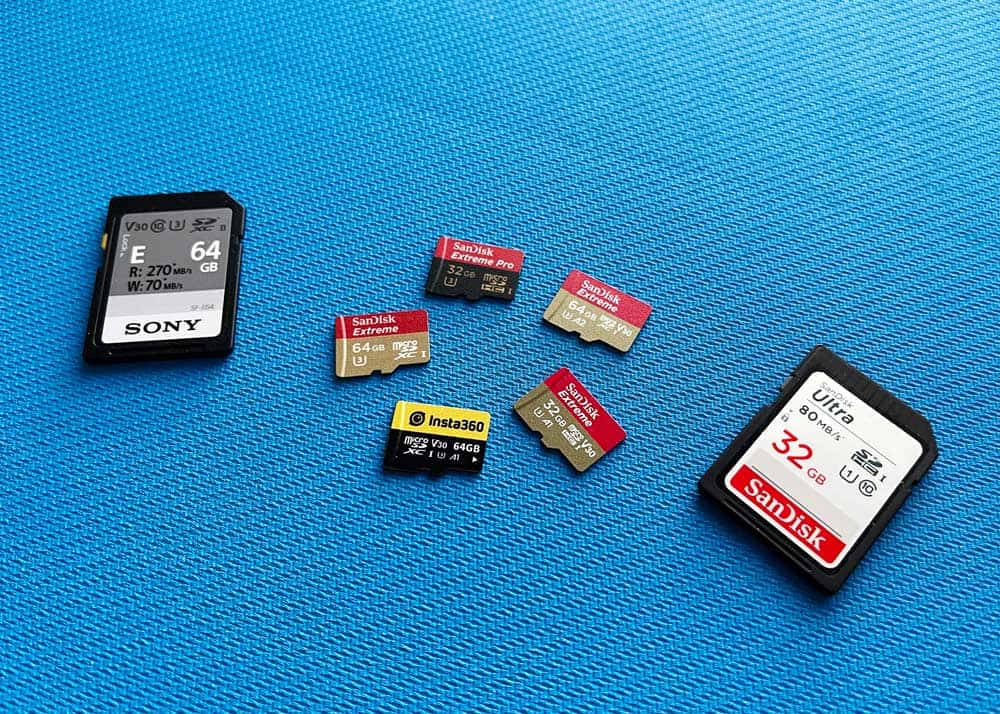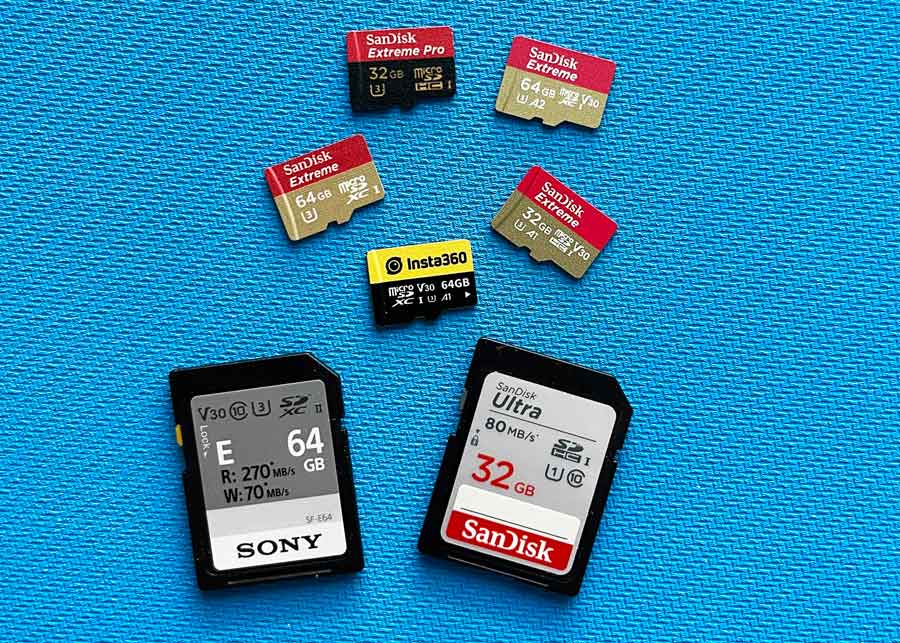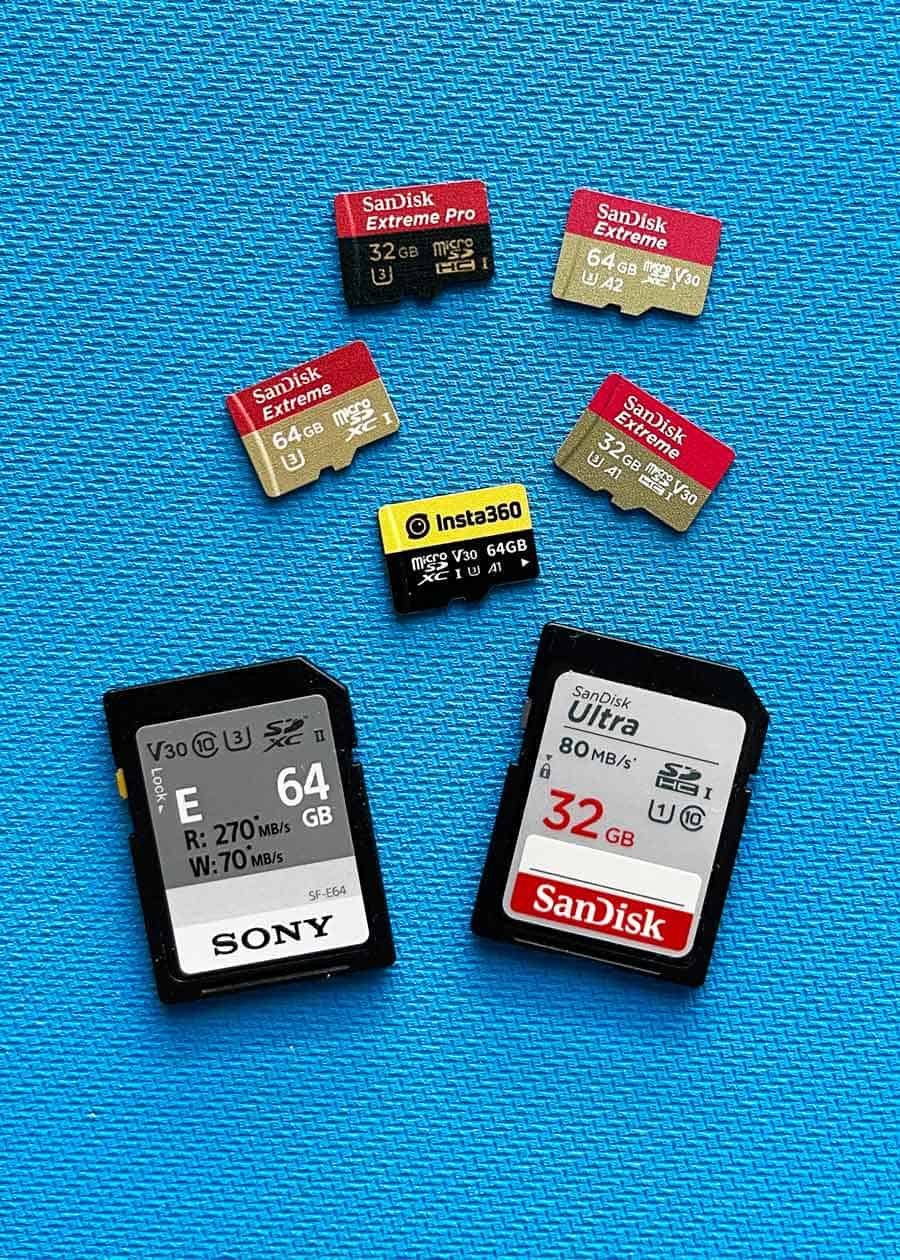If you’ve ever been confused by what a KB, MB, or GB is, this post will help. Understanding how many KB in a GB is essential for understanding file sizes and how much space they will take up on a computer and SD card.
There are 1,000,000 KB in a GB (decimal) and 1,048,576 KB in a GB (binary). Both methods of counting kilobytes are correct but depend on the type of tech you’re using. This post breaks down the relationship between KB and other multi-byte units. And how to convert between file sizes.

How Many KB in a GB?
Technically speaking, there are 1,024 kilobytes in a megabyte (MB) and 1,024 MB in a gigabyte (GB). So that means there are 1,048,576 KB in a GB.
However, most people round this number down to one thousand KB in one MB and one million KB in a GB. For some people, thinking this way makes it easier to remember how many kilobytes are in a gigabyte.
What is a Byte?
A byte is a unit of digital information that most computer systems use. Representing one of the smallest units of digital data, it’s made up of eight bits.
Bits are either 1 or 0. They can be strung together to form larger units like words. A byte usually represents a single character, such as a letter, number, or symbol.
For example, a computer will represent the letter “a” with the eight-bit string of “01000001.”
Bytes represent a measure of storage for all sorts of information on computers, including text, images, and sound. They also combine to form larger units like kilobytes and megabytes.
Binary or Decimal Multi-Byte Units?
Computing systems use two numeral systems: binary and decimal.
- Binary numeral system is base-two, using just two digits (zero and one).
- Decimal numeral system is base-ten, using ten digits (zero to nine).
The base multi-byte unit has either 1024 bytes (binary) or 1000 bytes (decimal). These units are often used interchangeably but actually result in compounding differences.
Here’s more about the difference between binary and decimal numeral systems.

Byte Data Conversions
It’s important to understand all the types of storage units involved with file sizes.
Here’s a list of storage units.
- 1 bit
- 1 byte
- 1 kilobyte (KB)
- 1 megabyte (MB)
- 1 gigabyte (GB)
- 1 terabyte (TB)
Let’s look at how each of these data types relates to one another in terms of file size.
We’ll start with the smallest unit, the bit, and work our way up to the terabyte.
- 0.125 bytes: 1 bit
- 1 byte: 8 bits
- 1,000 bytes: 1 kilobyte (KB)
- 1,000,000 bytes (1000 KB): 1 MB
- 1,000,000,000 bytes (1000 MB): 1 GB
- 1,000,000,000,000 bytes (1000 GB): 1 TB
How Many Bytes Are in a Kilobyte?
Technically speaking, there are 1024 bytes in a kilobyte. However, most people use 1000 when discussing the issue.
They will keep it simple and say there are 1000 bytes in a kilobyte.
How Many Bytes Are in a Megabyte?
Again, technically speaking, there are 1024 kilobytes in a megabyte. But most people use 1000 when discussing how many bytes are in a megabyte.
Therefore, they will say that there are 1000 kilobytes or 1 million bytes (1000 x 1000) in one megabyte. This option is how file sizes are typically listed on computers (1 MB, 10 MB, 100 MB, and so on).
How Many Bytes Are in a Gigabyte?
As you can probably guess by now, there are 1024 megabytes in one gigabyte. But like the other units of data, most people use 1000 when discussing how many bytes are in a gigabyte.
Therefore, they will say that there are 1000 megabytes or 1 billion bytes (1000 x 1000 x 1000) in one gigabyte.
How Many Bytes Are in a Terabyte?
Since there are 1000 (technically 1024) gigabytes in one terabyte, you will find that one terabyte equals 1 trillion bytes (1000 x 1000 x 1000 x 1000).
How Many Kilobytes Are in a Megabyte?
There are 1000 kilobytes in one megabyte.
How Many Kilobytes Are in a Gigabyte?
You will find 1 million kilobytes in one gigabyte.
How Many Kilobytes Are in a Terabyte?
Each terabyte consists of 1,000,000,000 kilobytes.
How Many Megabytes Are in a Gigabyte?
Each gigabyte provides 1000 megabytes of storage.
How Many Megabytes Are in a Terabyte?
Since there are 1000 megabytes in one gigabyte, each terabyte equals 1 million megabytes (1000 x 1000).
How Many Gigabytes Are in a Terabyte?
One terabyte equals 1000 gigabytes.
How much data can one terabyte hold? The answer may surprise you.
One terabyte of storage could hold:
- about 1000 hours of music
- about 40 days of HD video
- about 250000 high-resolution photos
- more than 2 million documents (including text and spreadsheets)
Here’s more about how many photos and videos can be stored per GB.
What’s Larger Than a Terabyte?
The computer industry uses a petabyte to measure data larger than a terabyte.
One petabyte is equal to 1000 terabytes. An interesting study indicates there may be several petabytes of information in the world.
Learn more about GB in photography.
Conversions: KB, MB, GB, TB
Here is the relationship between these common file sizes: KB, MB, GB, TB.
Converting KB to MB
Let’s say you have a file that is 12,345 kilobytes (KB). How do you convert this to megabytes?
12,345 KB = 12.345 MB
As you can see from this example, all you need to do is divide the number of kilobytes by 1000 to get the number of megabytes.
Converting MB to GB
Now let’s say you have a file that is 9,876 megabytes (MB). How do you convert this to gigabytes?
9,876 MB = 9.876 GB
Once again, you need to use the number “1000” to arrive at your answer. Divide the number of megabytes by 1000 to get the number of gigabytes.
Converting GB to TB
Finally, let’s say you have a file that is 7,654 gigabytes (GB). How do you convert this to terabytes?
7,654 GB = 7.654 TB
The process remains the same in this case. Divide the number of gigabytes by 1000 to get the number of terabytes.

Conclusion
As you can see, it’s easy to understand how many KB in a GB. Once you grasp the concept, however, it’s simple to convert between the different data units.
Here’s a simple way to remember the data and create conversions:
- In a kilobyte, you will find 1000 bytes
- In a megabyte, you will find 1000 KB
- In a GB, you will find 1000 megabytes
- In a terabyte, you will find 1000 gigabytes
Keep these data points in mind and use simple division math to arrive at any required conversion.
Have a question or maybe an addition to the post? Join me in the comments!
- About the Author
- Latest Posts
Hey, I’m Bryan! I’m a content creator and co-founder of Storyteller Tech.
Experienced GoPro Videographer: I’ve been shooting with GoPro cameras for over 11 years. My first GoPro was the Hero3 Silver, bought for a Galapagos work trip in 2012. Today I own 20+ action cameras, including GoPro, DJI, and Insta360 cameras.
Professional Creator: Dena and I have developed video and content marketing plans for numerous international travel brands. And we also run several content businesses.
Bryan also creates at Storyteller.Travel and is co-founder of Storyteller Media, a Canadian-based publishing company.
